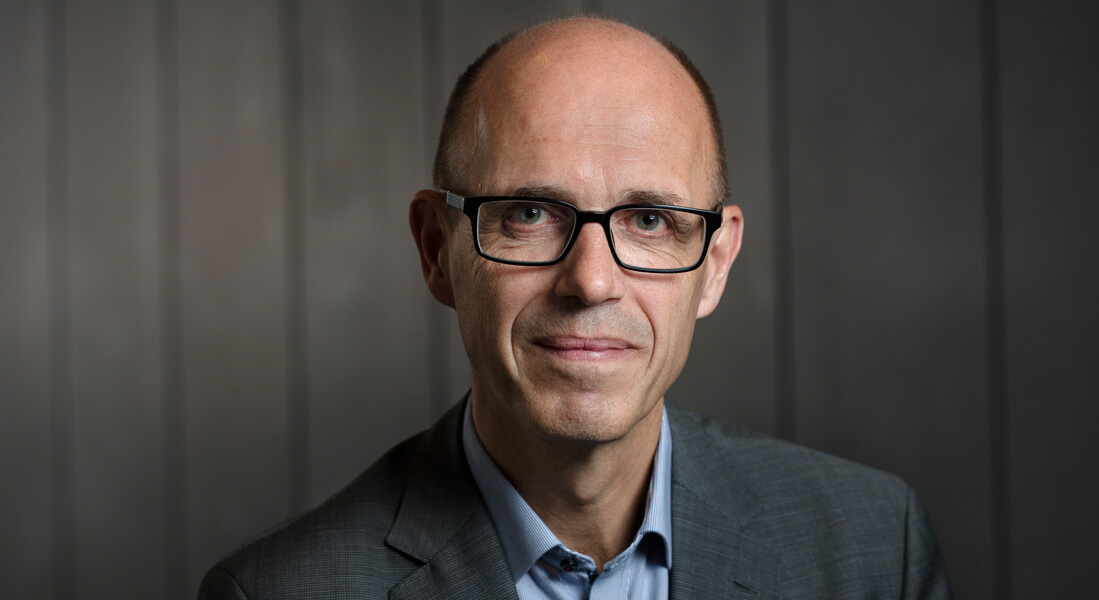On 27 October 2022, UCPH took over the presidency of the 4EU+ University Alliance. So what? you might think. Well, let me tell you: Working together is more important to you, UCPH and Denmark than ever before.

With war in Europe and other crises lining up, working together in Europe is the key to a better future. Not only within research. But certainly also for education.
The European Commission has decided to launch an effort for European higher education. That's terrific news. As we know, the core of universities is research and education. Now the message is that we should also give education a clear European dimension - just as we have for research.
It's my hope that working together on education will be just as natural, meaningful and value-adding as it has been for research. It also means that I have a very clear idea of what I want us to use our presidency for.
The Alliance must be viable
Our Alliance - plus 43 other European university alliances - was created on the back of a proposal from the European Commission along with a string of grants that will expire in four years' time. I will work to ensure that the 4EU+ alliance becomes so strong that it can stand on its own feet when the grants run out. It should be independent of the European Commission and sustainable in itself. That requires a long-term strategy. It's up to us to deliver the strategy, and that will be my focus during the University's presidency in the year ahead.
Students must be able to move freely
In the short term, we will be testing various joint educational activities. This is already going on. And in the long term, the vision is that students can seamlessly combine their education across Alliance campuses in Geneva, Heidelberg, Copenhagen, Milan, Paris, Prague and Warsaw.
My dream is that it will be just as simple to register for a course at the Sorbonne as it is to register for one at UCPH, and that the biggest obstacle in this context is that the Metro does not go all the way to Paris. It will take some time, but we are on our way. Student exchanges between the 4EU+ universities have tripled since the Alliance was established in 2018. The students are guaranteed access to seven great European universities, where both we and they know what you get. That kind of mobility and exchange is in everyone's interest.
Teachers develop courses together across institutions
It's still early days when it comes to cooperating on education. But that was also the case 30 years ago with the first small-scale cross-border research projects in Europe. At that time, many people were sceptical and asked: Why should we work together? Can't you just give us the money so we can go home and do our research?
Until now, UCPH has been involved in 28 4EU+ educational projects. The courses have been developed by lecturers at UCPH in collaboration with lecturers from one or more of the other universities in the Alliance. And the courses are a success. The students who have participated have enhanced their academic skills and created communities with students from the other countries. That's excellent, and we should continue along that path. It takes persistence, patience and time.
And - with UCPH as president - 4EU+ has just launched an Erasmus Mundus programme called Master of Science in Global Environment and Development. It's the first joint full programme under 4EU+. It's a huge effort.
Europe is also open to administrative staff
Cooperation in the Alliance is not limited to student mobility. It's also for administrative staff. UCPH is among the very best in the world to win research funding. Not long ago we welcomed a team of 4EU+ colleagues who came here to learn about our approach in this area.
In the same way, TAP staff from UCPH can travel to universities if they see something that others are good at and from which we could learn or improve.
We can boost the European dimension through the inspiration that comes from working closely with other institutions, which will only be increasingly important.
UCPH is a large and well-esteemed university - also on a European scale, but even so we want to be in the Alliance. When large universities team up, they have a different voice than on their own. In my view, not being part of a university alliance is not an option, otherwise we risk ending up as a university on the periphery of Europe.
Denmark has gained big time from being part of the European research collaboration. Without this collaboration, our position would have been vulnerable. We will also gain big time in the future by being part of the collaboration on education.






